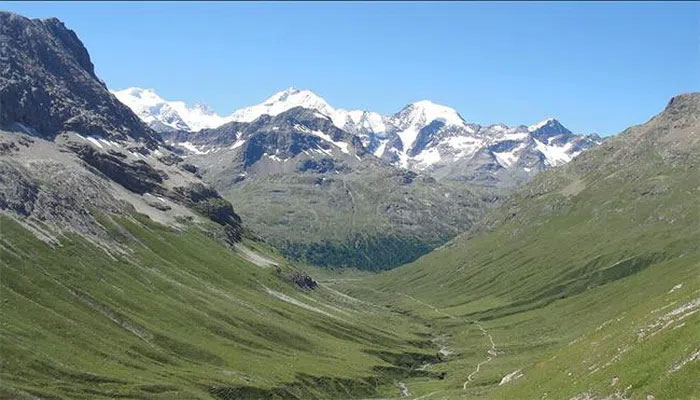The snow melts, the Alps are strongly 'greening'
This seemingly healthy "greening" is actually a clear alarm bell about faster climate change. This is the result of a study published in the journal Science on June 2, based on images of Europe's iconic mountain ranges recorded by satellites for 38 years.

The process of "greening" the Alps is a clear alarm bell about climate change happening faster.
The study's author, Sabine Rumpf, an ecologist at the University of Basel, said scientists were surprised to see this greening process taking place. Greening is a common phenomenon in the Arctic, but so far has not occurred on a large scale in mountainous areas. However, because both the Earth's poles and the high mountain ranges are warming faster than the rest of the Earth, scientists believe this is equally affecting the high mountains.
In the study, the team of scientists focused on the area at an altitude of 1,700m above sea level, excluding cultivated areas, forested areas and glaciers. The results of the analysis based on data recorded from 1984-2021 show that in the summer, about 10% of the studied area is no longer covered with snow. The scientists also compared the area of vegetation cover using wavelength analysis to detect the amount of chlorophyll present, with the result that vegetation grew on 77% of the area. research.
Greening occurs in three different ways, including plants starting to grow in areas that have never been seen before, plants growing taller and thicker due to favorable conditions, and finally plants. Specific objects grow normally at lower altitudes and then gradually move to higher areas.
According to Ms. Rumpf, climate change is the cause of this change, as warming will create conditions for plants to grow faster. Another side effect is that as temperatures rise, it will rain instead of snow. However, this will have some negative consequences, as most of the drinking water is obtained from melting snow, so if the water is not stored as snow, it will disappear faster when it is released. rivers. In addition, this phenomenon also affects the life of creatures that have adapted to the Alpine region, and negatively affects the tourism industry, which is a key economic sector here.
However, the researchers also suggest that the greening of the peaks may help increase CO2 absorption, but repeated this situation could melt the ice and lead to excessive warming consequences. Snow reflects about 90% of the sun's radiation, but plants absorb even more and give off the energy as heat - thereby accelerating warming.
Based on the observed situation, Ms. Rumpf forecast snow cover will decrease gradually, especially at lower altitude areas. Another phenomenon called "browning" - which refers to the surface phenomenon not covered by snow or vegetation - was also detected in nearly 1% of the study area. This phenomenon occurs more in areas observed in the Arctic, or the mountains of Central Asia. This situation stems from an increase in extreme rainfall and drought, and a decrease in the amount of water from melting snow that is available for plant growth.
- The largest glacier in the Alps may disappear by 2100
- Snow melts where Vietnam U23 finals Asia
- Why does a tree have a hole, even if it is not made by humans?
- Have black, yellow, red, blue snows?
- Things nobody knows about snow foxes
- Industrialization ends the Little Ice Age in the Alps
- Greenland Island will be completely transformed by 2100
- The scientific facts about snow are few people know
- France: 9 people died of avalanches in the Alps
- Admire the rare snow lotus in the Himalayas
- Is it safe to eat snow?
- Ice in the Alps can disappear by 2100
 Is the magnetic North Pole shift dangerous to humanity?
Is the magnetic North Pole shift dangerous to humanity? Washington legalizes the recycling of human bodies into fertilizer
Washington legalizes the recycling of human bodies into fertilizer Lightning stone - the mysterious guest
Lightning stone - the mysterious guest Stunned by the mysterious sunset, strange appearance
Stunned by the mysterious sunset, strange appearance